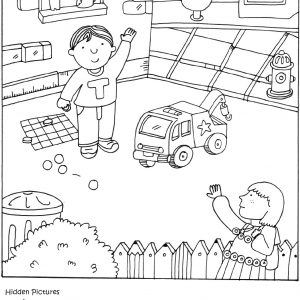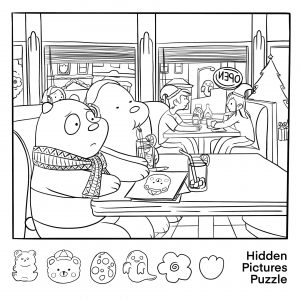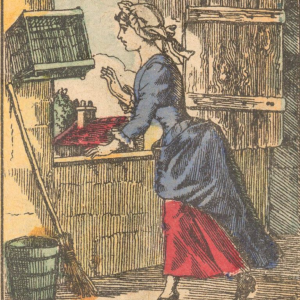Exploring the Joys of Simple Childhood Moments: A Peek into Everyday Adventures
In a world brimming with technology and distractions, sometimes the simplest moments of childhood bring the most joy. The image of two young girls engaged in a wholesome, everyday activity captures the essence of innocent curiosity and playful imagination. From stirring a bowl of alphabet soup to engaging in fun, shared experiences, these everyday moments are powerful reminders of the wonders of childhood. Let’s take a closer look at this scene and delve into the deeper meanings and benefits behind such seemingly simple moments.
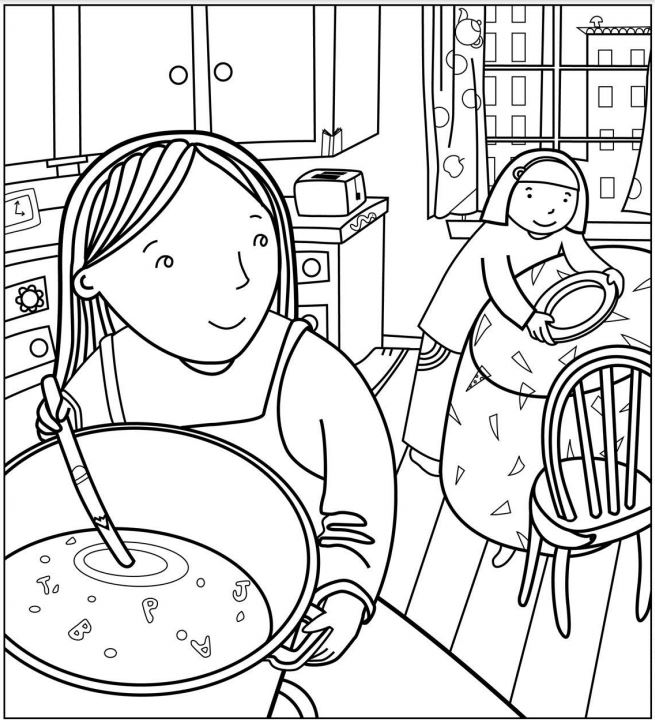
The Power of Simple Activities in Childhood Development
It’s easy to overlook the value of simple childhood activities, but when we stop to reflect, these small moments are often the ones that shape our lifelong memories and influence our development. Whether it’s cooking, playing, or simply exploring the world around them, these activities contribute to a child’s cognitive, social, and emotional growth. Let’s break down the power of such simple moments.
1. Encouraging Curiosity and Learning
The first girl in the image is seen stirring a bowl of alphabet soup, a moment of learning wrapped in fun. At first glance, it seems like just a basic task, but when we dig deeper, it becomes clear that activities like this can ignite a child’s curiosity. By identifying letters or trying to form words, children not only practice their literacy skills, but they also develop problem-solving abilities. The learning process becomes naturally embedded in play.
2. Building Social Bonds
The second girl, who is busy in the background, interacting with the scene, shows how these everyday moments are often shared. When children collaborate or share tasks like this, it helps foster communication and teamwork skills. They learn to express themselves, understand each other’s perspectives, and work together towards a common goal. These simple moments of shared activity are key in shaping their social development.
3. Promoting Emotional Growth
In addition to cognitive and social benefits, simple activities like these also promote emotional development. The act of cooking, playing, and engaging in imagination-based activities builds self-esteem, patience, and confidence. The more children can engage in fun, low-pressure activities, the more secure they feel in their ability to navigate the world around them.

Why Everyday Moments Matter More Than We Realize
In today’s fast-paced world, parents, educators, and caregivers often feel the pressure to create structured, activity-packed days for children. But sometimes, the best moments arise spontaneously. Simple activities—whether making alphabet soup, playing with friends, or reading a book—are far more meaningful than we often give them credit for. Here’s why:
1. Fostering Independence and Responsibility
While the girls in the picture are involved in a shared activity, moments like these can also foster independence. Children can learn responsibility through the smallest actions, whether it’s stirring the soup or helping to clean up afterward. These seemingly trivial tasks instill a sense of ownership, pride, and the importance of contribution to the family or community.
2. Allowing Room for Creativity
Both of the children in this picture are using their imagination, which is an essential part of growing up. Whether it’s imagining the soup ingredients forming different shapes or envisioning new games to play, their creativity is at the heart of their learning. It’s important to remember that creativity isn’t only about drawing or painting—sometimes it’s about how we approach daily tasks and make them our own.
3. Reducing Stress Through Simple Tasks
In a world where children face academic pressures and the constant pull of digital devices, simple tasks like this provide a much-needed break. Engaging in low-stress activities, where the end goal is just enjoyment, can be incredibly calming and relaxing. Activities like cooking or playing also allow children to be in the moment, helping reduce the anxieties that can sometimes accompany modern life.

The Hidden Lessons of the Scene: From Cooking to Connection
When we take a step back from this image, it becomes clear that there are valuable lessons hiding in plain sight. It’s not just about cooking alphabet soup or cleaning up after a fun day. It’s about what those actions represent:
1. The Value of Attention to Detail
In the image, one of the girls is so focused on stirring the soup that she’s paying attention to the individual letters forming in her bowl. This teaches children the importance of paying attention to details—whether it’s recognizing shapes, following instructions, or appreciating the small moments in life. It’s a valuable life lesson to slow down and notice the world around us, especially in a time when distractions are constant.
2. Building Emotional Resilience
Even in these quiet moments, children are also learning to regulate their emotions. If something goes wrong—like spilling some soup or missing a letter—they learn to cope and problem-solve. These small setbacks teach children to persevere and bounce back from challenges, building resilience that will serve them well in the future.
3. Encouraging Teamwork and Sharing
Though one girl is stirring and the other is playing, it’s clear that both are contributing to their shared experience. It’s a great reminder of the importance of working together and sharing responsibilities. Whether at home, in school, or in future careers, these early lessons in teamwork form the foundation of successful relationships and collaborative environments.
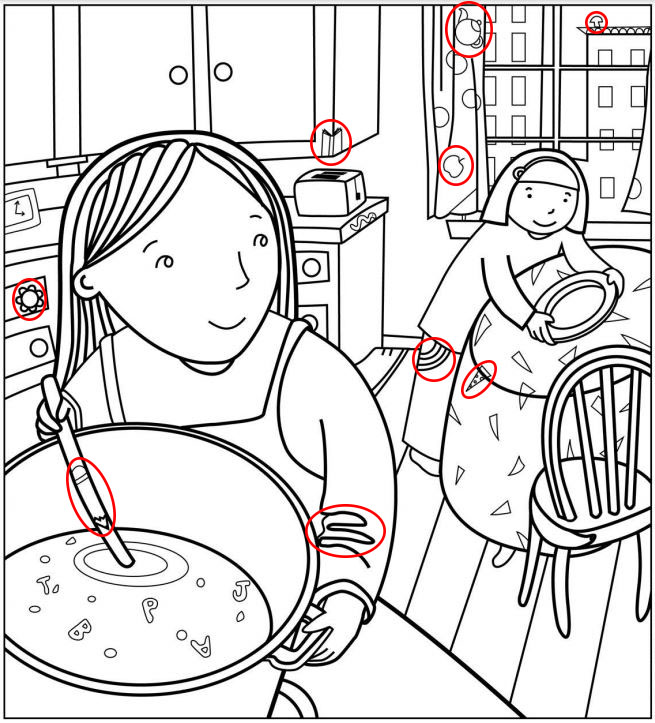
Conclusion: Celebrating the Simple Moments of Childhood
In essence, the picture tells a story of more than just two girls cooking and playing—it highlights the beauty of childhood’s simplicity. We often think that childhood needs to be full of grand adventures and highly structured activities to be meaningful, but sometimes it’s the little, everyday moments that have the most profound impact. By fostering curiosity, building social bonds, and encouraging emotional development, activities like cooking, cleaning, or playing can shape a child’s future in ways we can’t always measure.
So, next time you see children engaged in a simple activity, take a moment to appreciate the hidden lessons in those moments. The seemingly mundane is often where the magic happens. Whether they’re stirring a bowl of soup, working on a puzzle, or simply playing together, children are learning and growing in every moment. It’s up to us to support and celebrate these seemingly simple, yet essential, experiences.


